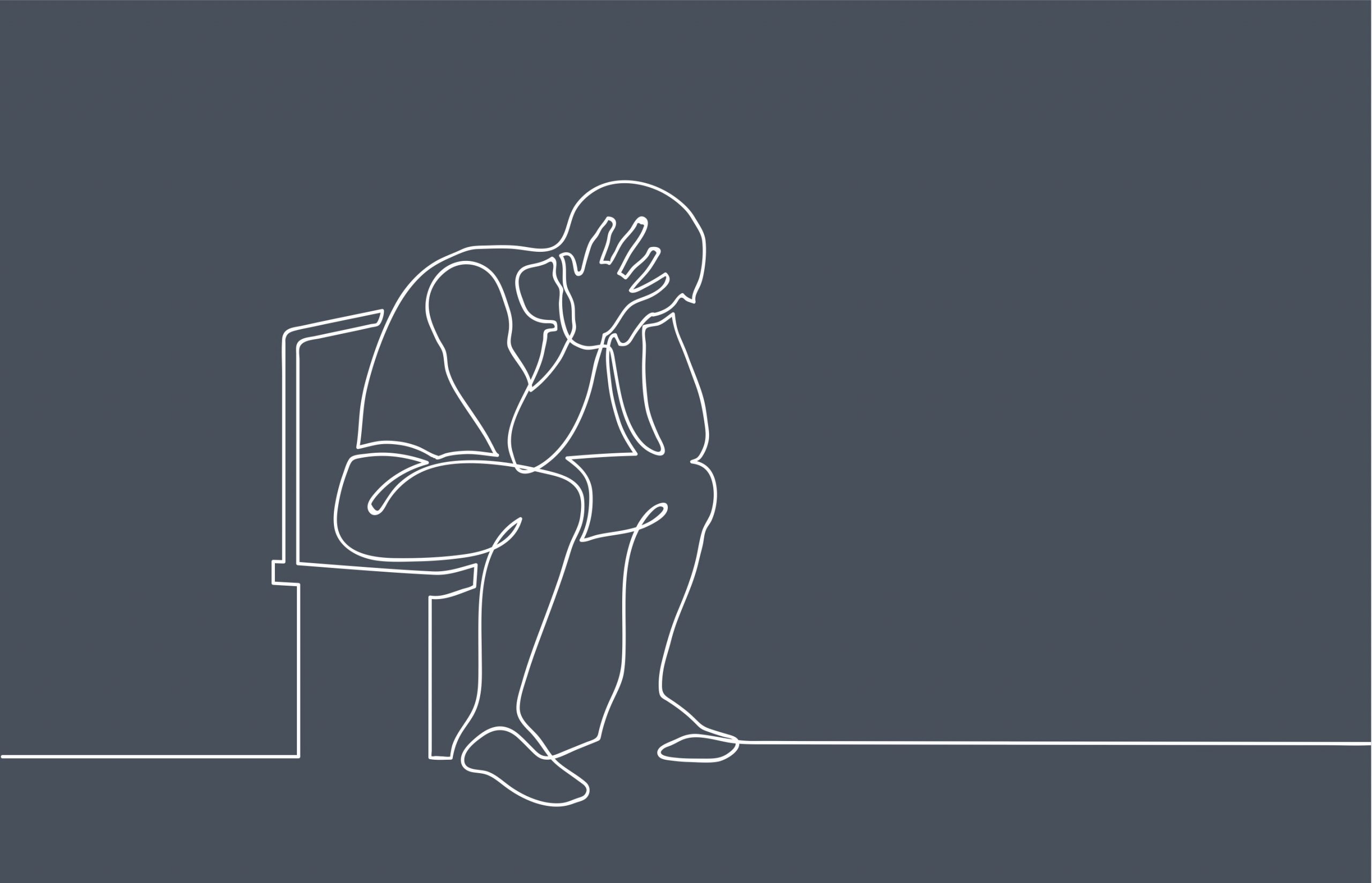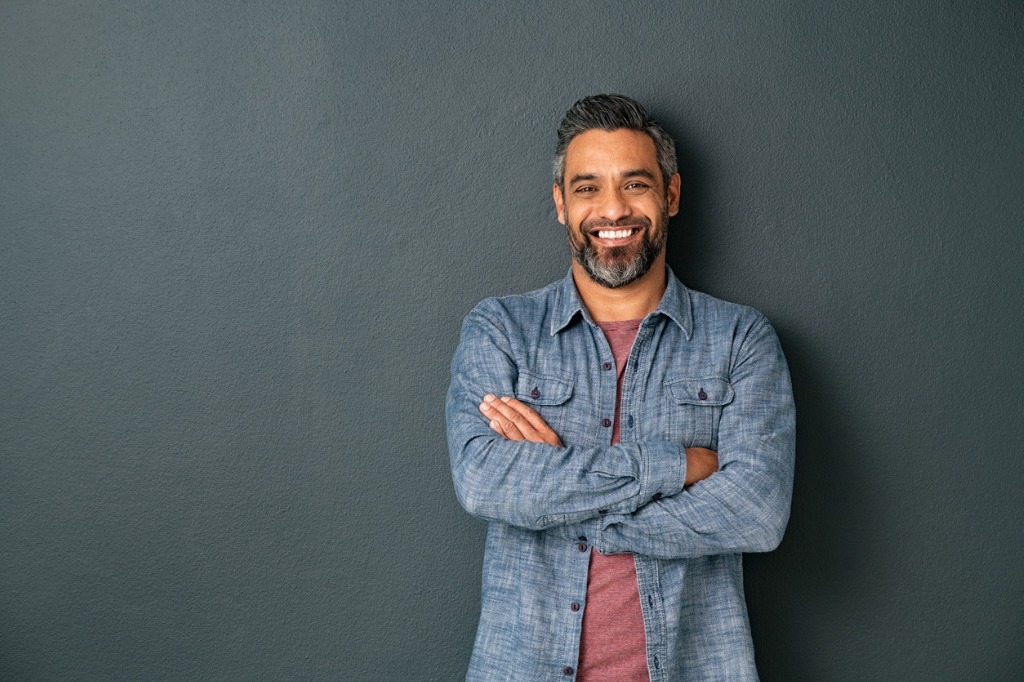Boundaries and Intimacy
Nov 05, 2021

We are frequently told to let go of our fear of intimacy, but no one ever tells us why we’re so afraid of intimacy. It’s not as if we’re devoiding human affection from our lives intentionally. We do it subconsciously as a survival mechanism due to our lack of boundaries. We lack boundaries with others partly because we fear rejection, and partly because we lack boundaries with our own selves. We may make regular promises to ourselves and, more often than not, we are incapable of keeping our own promises – especially regarding eating choices, work goals, exercise habits, etc. It’s hard to put faith in others when we barely trust ourselves. This is often the reason why many of us are cautious about going on dates with new people. We fear our boundaries being disrespected and not being able to speak up for ourselves out of fear of rejection. It is easy to tell others to have boundaries and self-respect, but when feelings, emotions, and sexual attraction intertwine, boundaries tend to go out the window with the rest of our self-respect.
Having a lack of boundaries creates a dynamic where anxiety fuels us and makes itself known in every single one of our interactions. Boundaries are the personal position we take regarding what we will allow into our sphere of influence and what we will not, and to what degree we will allow it. Healthy boundaries are not a black and white paradigm. Boundaries are about the relationship we have with ourselves. We are driven by reactive, emotional, thoughtless impulses, which requires us to also set limits with ourselves. Practicing delayed gratification is a healthy way to practice setting boundaries with ourselves.
So much of the distress we feel comes from reacting instinctually instead of acting with conscientious deliberation.
― Ryan Holiday, Stillness is the Key
Boundaries are a combination of what we will allow into our sphere of influence, both internally and externally. Internal boundaries are when we hold ourselves to promises and inner commitments. External boundaries are about how we interact with the world around us. We get to determine what those boundaries are. We get to decide who comes into our space, how far in, what they get to do while they’re in our space, how long they stay and when it’s time for them to leave.
Boundaries are not about getting other people to be different. They’re about getting us to be different. Usually, we think boundaries are telling others, “you should stop doing that to me”. That is not necessarily a boundary as it requires an attempt to control someone else. We typically think that boundaries are a way of controlling people or keeping them away, but if we actually have clear, healthy, and consistent boundaries, it will allow us to grow closer to other people, without destroying each other. Boundaries also create a healthy environment for others to remain close to us.
When we don’t create boundaries, we’re not teaching the people around us who we are or what we want. The uncertainty we carry in our boundaries causes anxiety in others, and when anxiety is in the room, everybody feels it. Nobody wants to violate another person’s boundaries, therefore uncertainty in any one person’s boundaries leads to anxiety for everyone involved. Anxiety is contagious. The key to boundaries is to recognize that we have to let people know what we expect and how we want to be treated, and oftentimes this changes, as do our boundaries. If we never engage in the process of letting people know where we stand, then we don’t get feedback from the world about the consequences of this boundary or lack thereof, and this creates anxiety in others because they don’t know where they stand in our lives or what they mean to us.
When we begin to set boundaries with people we love, a really hard thing happens: they hurt. They may feel a hole where you used to plug up their aloneness, their disorganization, or their financial irresponsibility. Whatever it is, they will feel a loss. If you love them, this will be difficult for you to watch. But, when you are dealing with someone who is hurting, remember that your boundaries are both necessary for you and helpful for them. If you have been enabling them to be irresponsible, your limit setting may nudge them toward responsibility.
― Henry Cloud, Boundaries: When To Say Yes, How to Say No
Boundaries are essential as they allow us to see ourselves and others as distinct beings, which allows us to quit taking things so personally. Absolutely nothing about boundaries is simple or easy to understand for any of us. We have the choice of dealing with the complexity and anxiety behind setting boundaries, or we can live life in a constant state of resistance, trying to control external factors.
All of humanity’s problems,” Blaise Pascal said in 1654, “stem from man’s inability to sit quietly in a room alone.
― Ryan Holiday, Stillness is the Key
How do we tackle the anxiety of setting boundaries? Let’s start with paying attention to what our responses are when our boundaries have been violated. In order to do so, we must practice stillness. In the safety of stillness, our anxiety cools, which allows us to understand what caused the anxiety. Without stillness, our anxiety is given room to escalate, causing us to overthink and overanalyze everything.
We are always trying to figure everything out. We attempt to intellectualize every feeling, trying to grasp it with our minds so that it makes sense. The truth is, feelings will never make logical sense because they aren’t supposed to. We cannot “think” our feelings, we can only feel them, and by trying to “think” them, we create anxious atmospheres for ourselves and everyone around us. Stillness allows a person the mental and emotional capacity to practice self-awareness.
Most of us would be seized with fear if our bodies went numb, and would do everything possible to avoid it, yet we take no interest at all in the numbing of our souls. — EPICTETUS
― Ryan Holiday, Stillness is the Key
What does this look like? Begin by learning to embrace your anxiety. Anxiety is an informant. It’s not a dreaded beast that we have to be rid of or hide from. Learn to breathe, as breathing is the gateway to stillness and calming anxious states. Then, learn to be present. We can do so by setting our intention at the beginning of the day to be present. Spend some time with yourself, and have a stillness practice. Create a morning ritual that allows you to start the day with coolness and awareness. The state we’re looking for isn’t a deeply relaxed comfort state. It’s an alert, relaxed, open, ready-to-respond state. It is not passive, it’s very active. Just as anxiety begets anxiety, consciousness begets consciousness. Without boundaries, intimacy is not possible.
Routine, done for long enough and done sincerely enough, becomes more than routine. It becomes ritual—it becomes sanctified and holy.
― Ryan Holiday, Stillness Is the Key
Upcoming Meetings
Men Transforming Relationships [Pt-2]: From Anxiety to Confidence through Self-Awareness
Jul 30, 2024



Whatever we believe is true; our mind will find it to be true and find evidence to support it. What we believe to be true is what we will manifest in the world, and that is what we will attract to ourselves. It's a common dynamic amongst nice guys to have at least some negativity and resentment ...
Not a member yet?
Sign up to attend an upcoming meeting

Becoming an Integrated Male
Feb 18, 2022
Are you a Nice Guy? Do you always want to gain someone’s approval in one way…

Valentine’s Day Ideas to Have Fun Without Breaking the Bank
Feb 11, 2022
For obvious reasons, it’s pretty typical to want to go above and beyond to make sure…

It’s Not Emasculating to Say No
Feb 04, 2022
Societal gender roles have done a great deal of damage to the way we perceive ourselves…

Are Poor Communication Skills Hurting Your Relationships
Jan 21, 2022
Successful communication is the hallmark of a healthy relationship. When there is a lack of communication,…